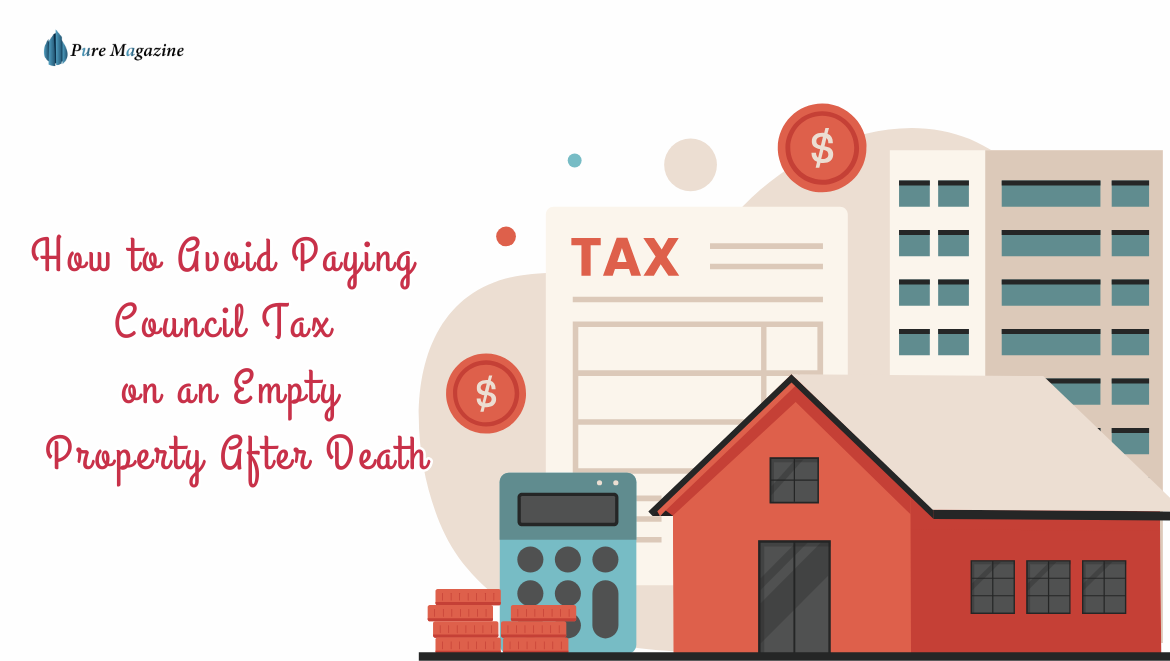Losing someone close isn’t just about grief — it’s the sudden wave of admin that catches many families off guard. The paperwork piles up, the phone calls never end, and then, as if that’s not enough, a council tax bill drops through the letterbox for a house nobody is living in.
If you’ve ever wondered, “Do we really have to pay council tax on an empty property after death?” you’re not alone. The rules aren’t always clear, and every council seems to handle things slightly differently. But with the right knowledge, you can often avoid paying unnecessary council tax or at least reduce the amount owed.
This guide unpacks the key rules, exemptions, and little-known tips that can save families both money and stress.
So, What Happens to Council Tax When a Property Is Empty?
When someone dies, their home is suddenly labelled an empty property until it’s sold, rented out, or taken over by someone else. And yes — in most cases, councils still expect council tax payments.
To make matters trickier, many councils add what’s called an empty property premium, which can double the bill if the house sits unoccupied for too long. That’s a nasty surprise for families already stretched thin.
Not every empty home is treated the same, though. A property being renovated, or one where the late owner had moved into a care home or hospital, may qualify for special relief.
Take the Thompsons, for example. They inherited their uncle’s home and assumed probate meant no council tax. A few weeks later, a full bill landed on their doormat — premium included. Had they called the council straight away with the right documents, that headache could’ve been avoided.
Exemptions and Discounts You Should Know About
Here’s the brighter side: councils do offer exemptions and discounts in certain circumstances. Knowing these can save a family hundreds, even thousands.
1. Probate Period Exemption
While probate is ongoing, many councils will pause council tax for up to six months. This breathing space lets families focus on legal matters and decide whether to sell, rent, or move in.
But here’s the catch: councils don’t apply it automatically. You need to:
- Tell them about the death as soon as possible.
- Send over documents like the grant of probate or letters of administration.
Skip this step, and bills may start racking up from the date of death itself.
2. Homes Needing Major Repairs
If the house you’ve inherited needs serious work — maybe the roof leaks or it’s not fit to live in — councils may grant a temporary council tax discount.
Keep proof handy, like:
- Contractor invoices
- Renovation plans
- Building permits
It shows the property can’t be lived in yet, which can reduce your liability.
3. Care Home or Hospital Situations
If the late owner was in a care home or hospital before they passed, the property may qualify for up to 12 months exemption. This rule recognises that families shouldn’t be penalised for something beyond their control.
4. Charities and Ministers of Religion
Rare but worth mentioning: if the property passes to a registered charity or is used by a minister of religion, it could be fully exempt.
Steps to Reduce or Avoid Council Tax on Empty Properties
Okay, let’s get practical. If you’ve just inherited a property, here’s what you should do:
- Notify the council quickly. Share the date of death and estate details.
- Check exemptions. Don’t assume you’re not eligible — probate, repairs, care home cases, and charity transfers all matter.
- Keep your paperwork in order. Grants of probate, renovation invoices, and hospital records can all help your case.
- Think short-term solutions. Renting the property or even using property guardians can sometimes lower or avoid council tax altogether.
The Wilson family did exactly this — they contacted their council immediately after probate began and submitted the documents. The result? Months of charges were wiped from the bill.
How Long Can a House Stay Empty?
Families often ask, “How long can a house stay empty without paying council tax?” The answer ties directly into how to avoid paying council tax on an empty property after death.
Here’s a general guide:
- First 6 months after probate: Many councils allow full exemption.
- Up to 12 months: You may still qualify for relief if the property is under renovation or linked to a care home situation.
- Beyond 12 months: Watch out. Councils often hit you with a long-term empty property premium — in some places, this can double the council tax bill.
Always check with your local authority. What’s true in Oxford may not be true in Leeds.
Common Mistakes Families Make
Even with the best intentions, it’s easy to slip up. Here are the pitfalls to avoid:
- Waiting too long to tell the council. Bills keep adding up in the meantime.
- Assuming probate = automatic exemption. Councils need proof.
- Ignoring the empty property premium. Leave a home empty too long, and the bill can spiral fast.
Don’t Forget Other Taxes
Council tax is only one part of the financial puzzle when someone passes away. Keep an eye on:
- Inheritance Tax – depending on the estate’s value.
- Capital Gains Tax – if the property’s value rises before you sell it.
- Professional advice – solicitors, HMRC, or the Valuation Office Agency can give tailored help.
A little planning goes a long way in making sure the estate doesn’t lose unnecessary money.
FAQs
Q: How long can a house be empty without paying council tax?
A: Often up to six months during probate, sometimes up to 12 months for special cases. After that, expect full charges and possibly a premium.
Q: Do you pay council tax during probate?
A: Not always. If you notify the council and provide proof, exemptions usually apply.
Q: Can renovations reduce council tax?
A: Yes — if the home isn’t habitable and you can prove major repair work is underway.
Q: Does council tax apply to inherited homes?
A: Yes, though exemptions can reduce the bill.
Q: What if I rent the house out instead?
A: Renting often changes the liability and can reduce council tax, but rules vary by council.
Wrapping Up
Sorting out a loved one’s home is never simple. Between grief, legal documents, and endless phone calls, council tax feels like just another hurdle. But by understanding how to avoid paying council tax on an empty property after death — through exemptions during probate, discounts for repairs, and timelines for empty homes — families can cut costs and reduce stress.
Here’s the short version:
- Call the council right away.
- Check for every exemption possible.
- Keep paperwork organised.
- Act early before premiums hit.
That way, you spend less time arguing over bills and more time remembering the person you’ve lost.
Visit: Pure Magazine








